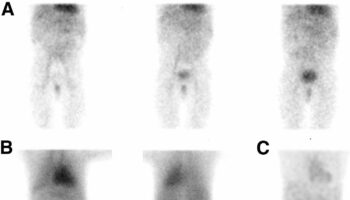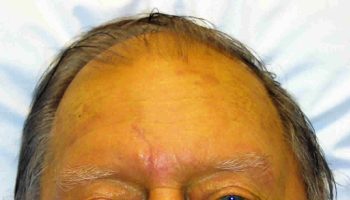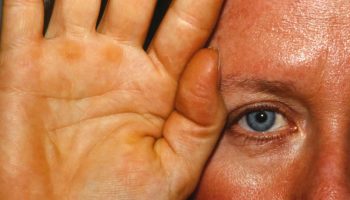Contents
African Mango supplement
African Mango also known as Irvingia gabonensis, wild mango or African bush mango is a fruit-bearing tree that is native to western and central Africa 1, 2, 3. It is theorized that African Mango seed kernel extract works by inhibiting adipogenesis (the process by which fat-laden cells or adipocytes develop and accumulate as fat tissue at various sites in the body) by down-regulating peroxisome proliferator-activated receptor gamma (PPAR-gamma) which is responsible for the differentiation of adipocytes (fat cells), as demonstrated in test tube study 4, 5. In addition, a proprietary extract of African Mango, IGOB131, reduces serum levels of leptin, a hormone produced by fat cells and released into the bloodstream that helps regulate body weight and appetite by signaling to the brain to reduce your urge to eat by making you feel full which is positively correlated with reduction in body weight and percentage body fat 6, 7, 8. Moreover, IGOB131 African mango supplement might also reduce total cholesterol and low-density lipoprotein (LDL, bad cholesterol) levels 7. In a blind randomized placebo controlled clinical trial using IGOB131 African mango supplement taken at 150 mg twice daily (300 mg total daily dose) before meals in overweight and/or obese human volunteers (defined as body mass index [BMI] > 25 kg/m2) for 10 weeks favorably impacts body weight and a variety of parameters characteristic of the metabolic syndrome. That randomized placebo controlled clinical trial using IGOB131 African mango extract significantly reduce body weight, body fat, and waist circumference as well as plasma total cholesterol, LDL cholesterol, blood glucose, C-reactive protein (CRP), adiponectin and leptin levels compared with the placebo group 7. That clinical study showed IGOB131 African mango supplement is associated with increases in plasma adiponectin levels and decreases in leptin and C-reactive protein (CRP) levels in comparison with the placebo group 7. Irvingia gabonensis has also been used to treat hypercholesterolemia 5.
Does African mango supplement work for weight loss?
African Mango or Irvingia gabonensis supplement is often used as weight loss dietary supplement in the US market. There are few clinical trials, all with small sample sizes and only very weak evidence that showed possible modest reduction in body weight and waist circumference in subjects taking African mango supplement.
The first randomized, double-blind, placebo-controlled trial was performed by Ngondi et al. in 2005 with 40 obese subjects aged between 19 and 55 years in Cameroon, Central Africa 9. The participants were randomly assigned to receive 350 mg of Irvingia gabonensis seed extract or placebo for 4 weeks. At the end of the 4 weeks, the Irvingia gabonensis group was observed to have a decrease in body weight of 5.6 ± 2.7%, a decrease in waist circumference of 5.07 ± 3.18% and a decrease in hip circumference of 3.42 ± 2.12% 9. The placebo group observed a decrease in body weight of 1.32 ± 0.41%. There was no change in percent body fat for both the treatment and placebo groups 9.
A second clinical trial also conducted in Cameroon by Ngondi et al. in 2009 7 also examined the effects of IGOB131 Irvingia gabonensis on weight loss. This was a double-blind, placebo-controlled trial in which 102 natives of Cameroon with a body mass index (BMI) of 26 to 40 kg/m2 were randomized to receive 150 mg of IGOB131 African mango extract or placebo 30 to 60 minutes before lunch and dinner (300 mg total daily dose) for 10 weeks 7. At the end of the study period, there was a significant difference between the treatment group and placebo for body weight (−12.8 kg versus −0.7 kg), waist circumference (−16.19 cm versus −5.3 cm), and percent body fat (−6.3% versus −1.99%) 7.
This randomized placebo controlled clinical trial, along with two others, was included in a 2013 systematic review whose authors reported that African mango (Irvingia gabonensis) extract causes statistically significant reduce body weight and waist circumference 8. The authors noted, however, that the trials included in their review used different study methodologies, small samples, short intervention periods, and varying daily doses of African mango (Irvingia gabonensis) extract (300 mg to 3,150 mg); in addition, the trials were all conducted by the same authors 8. Additional trials with larger samples and diverse populations are needed to determine whether African mango (Irvingia gabonensis) extract is effective for weight loss 8.
Is African mango weight loss supplement safe?
African mango supplement appears to be well tolerated. No adverse effects have been found in rats at doses up to 2,500 mg/kg body weight per day 10, but its safety has not been rigorously studied in humans. Most reported adverse effects are mild, including headache, difficulty sleeping, farting and gas 8. However, African mango supplement has been associated with kidney failure in a patient with chronic kidney disease 11.
African mango supplement side effects
Reported African mango supplement side effects include headache, difficulty sleeping, farting, and gas 8. African mango supplement has been associated with kidney failure in a patient with chronic kidney disease 11.
- Ríos-Hoyo A, Gutiérrez-Salmeán G. New Dietary Supplements for Obesity: What We Currently Know. Curr Obes Rep. 2016 Jun;5(2):262-70. doi: 10.1007/s13679-016-0214-y[↩]
- Ngondi JL, Oben JE, Minka SR. The effect of Irvingia gabonensis seeds on body weight and blood lipids of obese subjects in Cameroon. Lipids in Health and Disease. 2005;4, article 12 doi: 10.1186/1476-511X-4-12[↩]
- Agbor GA, Oben JE, Ngogang JY, Xinxing C, Vinson JA. Antioxidant capacity of some herbs/spices from cameroon: a comparative study of two methods. J Agric Food Chem. 2005;53:6819–6824. doi: 10.1021/jf050445c[↩]
- Oben J, Ngondi JL, Blum K. Inhibition of Irvingigia gabonensis seed extract (OB131) on adipogenesis as mediated via down regulation of the PPARy and Leptin genes and up-regulation of the adiponectic gene. Lipids in Health and Disease. 2008;7:44. doi: 10.1186/1476-511X-7-44[↩]
- Egras AM, Hamilton WR, Lenz TL, Monaghan MS. An evidence-based review of fat modifying supplemental weight loss products. J Obes. 2011;2011:297315. doi: 10.1155/2011/297315[↩][↩]
- Ngondi J, Oben J, Minka R. The effect of Irvingia gabonensis seeds on body weight and blod lipids of obese subjects in Cameroon. Lipids in Health & Disease. 2005;4:12. doi: 10.1186/1476-511X-4-12[↩]
- Ngondi JL, Etoundi BC, Nyangono CB, Mbofung CM, Oben JE. IGOB131, a novel seed extract of the West African plant Irvingia gabonensis, significantly reduces body weight and improves metabolic parameters in overweight humans in a randomized double-blind placebo controlled investigation. Lipids Health Dis. 2009 Mar 2;8:7. doi: 10.1186/1476-511X-8-7[↩][↩][↩][↩][↩][↩][↩]
- Onakpoya I, Davies L, Posadzki P, Ernst E. The efficacy of Irvingia gabonensis supplementation in the management of overweight and obesity: a systematic review of randomized controlled trials. J Diet Suppl. 2013 Mar;10(1):29-38. doi: 10.3109/19390211.2012.760508[↩][↩][↩][↩][↩][↩]
- Ngondi JL, Oben JE, Minka SR. The effect of Irvingia gabonensis seeds on body weight and blood lipids of obese subjects in Cameroon. Lipids Health Dis. 2005 May 25;4:12. doi: 10.1186/1476-511X-4-12[↩][↩][↩]
- Kothari SC, Shivarudraiah P, Venkataramaiah SB, Gavara S, Soni MG. Subchronic toxicity and mutagenicity/genotoxicity studies of Irvingia gabonensis extract (IGOB131). Food Chem Toxicol. 2012 May;50(5):1468-79. doi: 10.1016/j.fct.2012.02.023[↩]
- Özkan G, Ulusoy Ş. A case of renal failure developing in association with African mango consumption. Int J Clin Exp Med. 2015 Apr 15;8(4):6374-8. https://pmc.ncbi.nlm.nih.gov/articles/PMC4484011[↩][↩]





